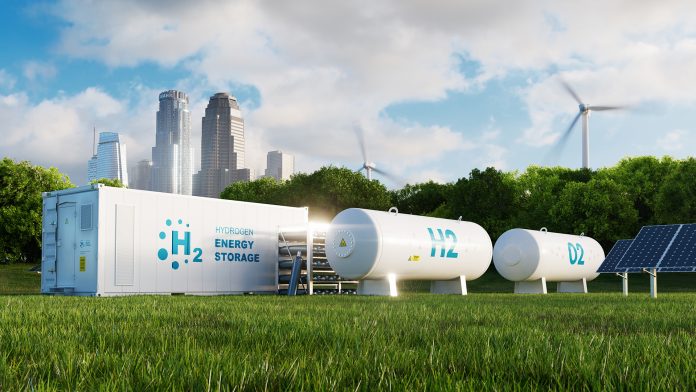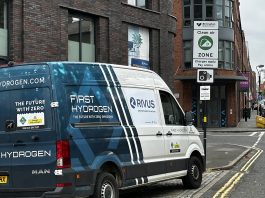The United States Department of Energy (DOE) has announced it will fund $47.7m to advance clean hydrogen technologies.
The sizeable funding will help pioneer next-generation clean hydrogen technologies by supporting 16 research, development, and demonstration (RD&D) projects across 13 states.
The initiative aims to lower technology costs, optimise hydrogen infrastructure, and improve hydrogen fuel cell performance.
Combined with the Regional Clean Hydrogen Hubs, tax incentives, and ongoing RD&D in the DOE’s Hydrogen Programme, the funding will be instrumental in achieving the goal of reducing clean hydrogen costs to $1 per kilogram by 2030.
Jennifer Granholm, the US Secretary of Energy, added: “Making next-generation climate technologies cost-competitive is key to realising President Biden’s vision of a strong clean energy economy rooted in equity and opportunity.
“Today’s announcement will help accelerate DOE’s efforts to advance clean hydrogen, providing the nation another exciting tool to clean up some of our most energy-intensive sectors while revitalising American manufacturing for decades to come.”
How will clean hydrogen technologies decarbonise the US?
Clean hydrogen technologies will be essential in decarbonising challenging industries across the US, including heavy-duty transportation and industrial and chemical processes like steelmaking and fertiliser production.
Reducing emissions in these sectors will benefit communities that have disproportionately suffered from environmental pollution historically.
However, despite rapid advancements in recent years, clean hydrogen technologies face many challenges, such as costs and scalability – challenges the projects will look to overcome.
Which projects have been selected?
The DOE’s Hydrogen and Fuel Cell Technologies Office (HFTO) is spearheading a series of innovative projects aimed at advancing the clean hydrogen sector.
These initiatives are designed to complement existing efforts to reduce the production cost of clean hydrogen by focusing on key aspects of the hydrogen value chain.
Specifically, the projects concentrate on hydrogen delivery and storage technologies, as well as enhancing the affordability and durability of fuel cells.
An additional emphasis is placed on fuel cell RD&D for heavy-duty trucks, with the goal of reducing CO2 emissions and eliminating harmful tailpipe emissions that impact local air quality.
Several noteworthy projects have been selected for funding, each contributing to the broader objective:
- High-Performance Fuel Cells: Led by the University of Hawaii at Manoa, this project seeks to develop high-performance, durable fuel cells for clean hydrogen utilisation. The project aims to support the widespread adoption of medium- and heavy-duty fuel cell-powered trucks, providing a zero-emission alternative to conventional diesel trucks. (Award: $4 million)
- Hydrogen Recovery System: The Colorado School of Mines is leading this endeavour, which focuses on engineering a system capable of recovering hydrogen that vaporises during liquid hydrogen transfers. The project aims to capture 80% of this ‘boil off’ hydrogen, reducing the cost of clean hydrogen production and mitigating its indirect greenhouse gas effects. (Award: $6 million)
- Composite Liquid-Hydrogen Tank: GE Research is at the helm of this project, which involves the design, production, and testing of a composite tank capable of carrying 20kg of liquid hydrogen. The tank’s scalability to larger capacities, suitable for heavy-truck and aircraft applications, is crucial for enabling clean hydrogen use in these transportation sectors. (Award: $2.9 million)
- Chemical Hydrogen Storage: The University of Southern California leads this initiative, focused on developing efficient chemicals that can transport hydrogen to its intended use point. Once released, these chemicals can be repurposed for valuable agricultural applications. Collaboration includes Los Alamos and Brookhaven National Laboratories, as well as California State University, Los Angeles, a minority-serving institution. (Award: $1 million)
- Formate-Based Hydrogen Storage: Louisiana State University heads this project, aiming to devise a cost-effective method for hydrogen storage using chemical carriers. The goal is to provide lower-cost, higher-capacity storage solutions to enhance the commercial viability of clean hydrogen across various applications. (Award: $1 million)
These initiatives underscore the commitment of the HFTO to drive advancements in clean hydrogen technologies, fostering a sustainable and environmentally friendly future for hydrogen-based energy solutions.









